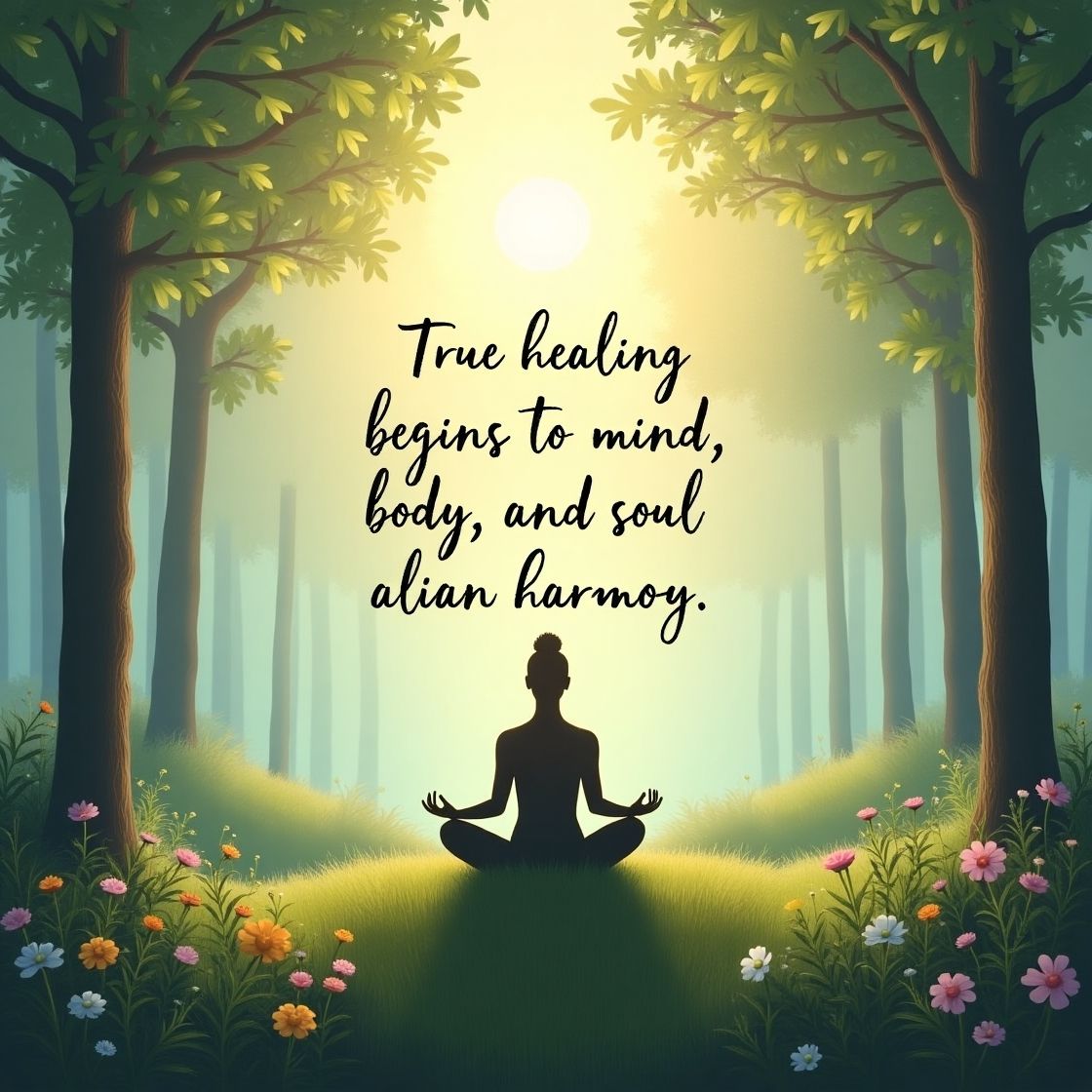Mental health isn’t just about your brain. It’s about your body, your soul, and the way you live each day. Holistic approaches to mental health focus on healing all parts of you together. This method sees emotional and mental struggles as more than just chemical imbalances. Instead, it looks at your entire life. That includes your food, sleep, movement, energy, thoughts, and even spiritual beliefs. In the World, more people are now turning to these whole-body healing methods. They’re seeking answers that feel more natural, gentle, and long-lasting.
This article will walk you through every part of what is holistic therapy for mental health, using easy-to-understand language and real solutions. You’ll learn how to support your mind, heal emotions, and connect deeply to your soul—all without needing to depend only on medication.
What Is Holistic Mental Health?
Holistic mental health means treating your emotional pain by looking at every area of your life. Instead of just taking pills for symptoms, you work to find balance in your body, mind, and spirit. This may include natural mental health treatment, therapy, prayer, breathwork, or energy healing. People are beginning to choose soul-centered therapy because it offers deep healing, not just quick fixes.
Holistic healing often includes spiritual approaches to mental wellness, healthy habits, supportive communities, and mindfulness. These are non-clinical approaches to depression that aim to get to the root cause of your pain. You focus on understanding yourself, your story, your habits, and how they connect to your mental state.

Why Holistic Healing Matters in Modern Mental Health
Many people today feel tired, anxious, or depressed, even with access to doctors and therapy. Traditional treatments often rely heavily on drugs. While medication can help, it sometimes misses other causes of suffering. That’s why people are looking into alternatives to antidepressants like yoga, journaling, or Islamic holistic health practices.
Holistic mental care matters because it treats you like a whole person. You aren’t just your diagnosis. You’re a living being with needs for rest, movement, love, and peace. By using lifestyle changes for mental wellness, people begin to find hope, joy, and stability again.
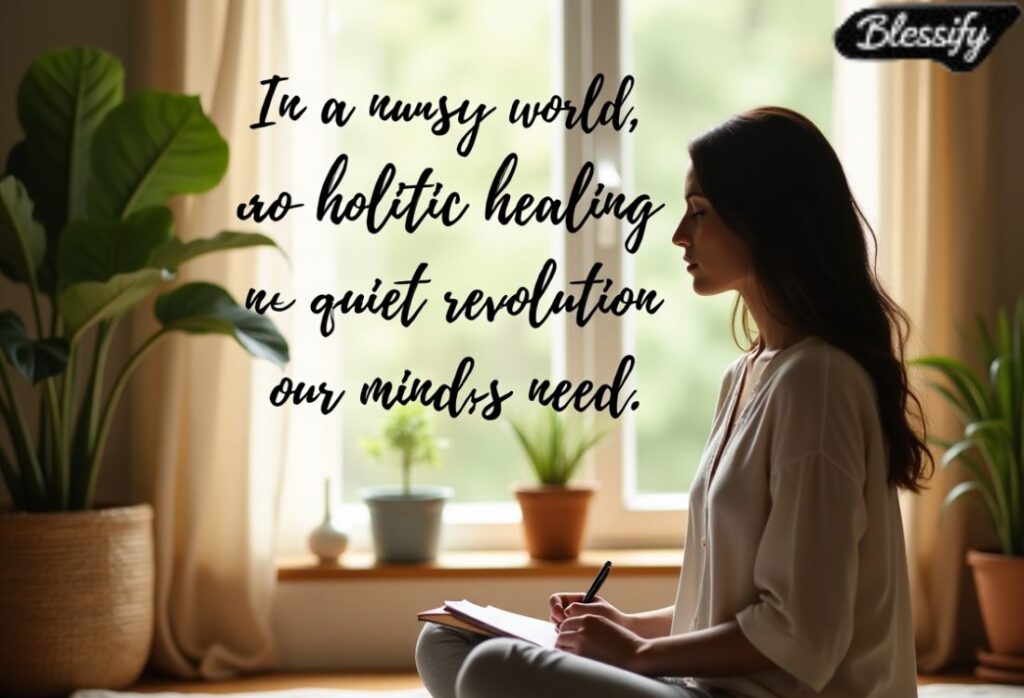
Mind-Body Connection: The Foundation of Holistic Healing
One key idea in holistic health is that your mind and body are deeply connected. Physical pain can affect your mood. And emotional stress can create illness in the body. This is known as the mental, physical, and spiritual health connection.
How to align your mind, body, and soul? Try daily movement, gentle stretches, healthy food, and breathing deeply. Practices like yoga and tai chi show how moving the body can release sadness or fear stored inside. The role of movement in stress reduction is real, and science backs it up.
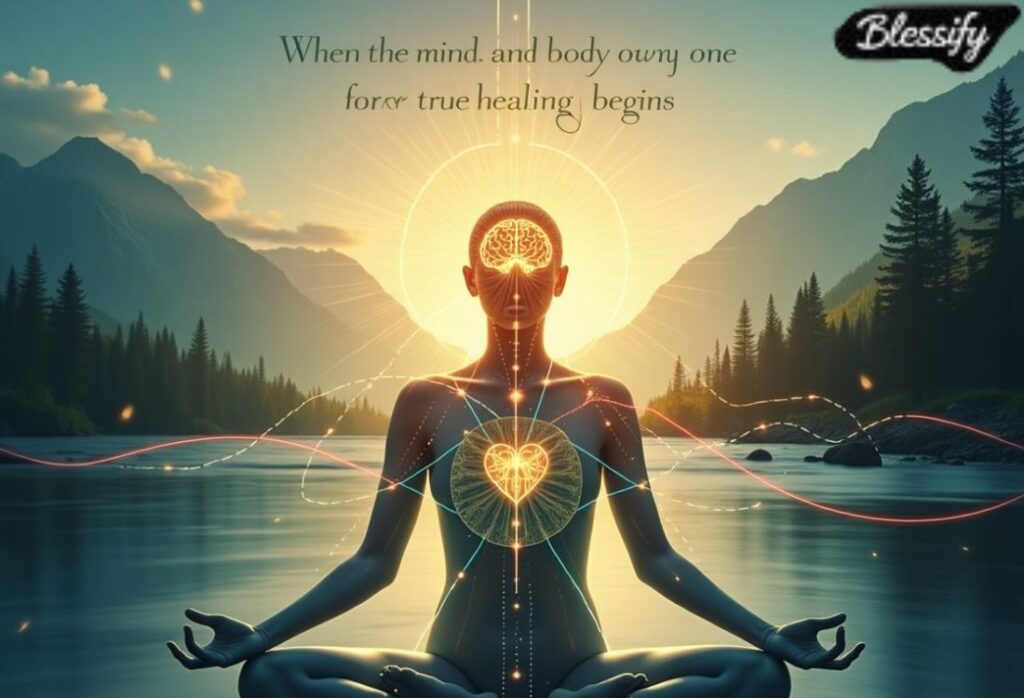
Nutrition and Mental Health: Feeding the Brain Right
Food affects how you feel. A poor diet can lead to brain fog, sadness, or anxiety. On the other hand, eating fresh, whole foods can lift your mood and focus. This is why how diet affects mental wellness is a growing area of study.
The importance of gut health in mood regulation is huge. Your gut makes many brain chemicals like serotonin. Eating fermented foods, fiber, and omega-3s can help.
| Food | Mental Benefit |
|---|---|
| Salmon | Supports mood balance |
| Yogurt | Boosts gut health |
| Leafy greens | Reduces brain inflammation |
| Berries | Improves memory |
If you’re wondering what foods improve mental health naturally, start with colorful vegetables, whole grains, and healthy fats.
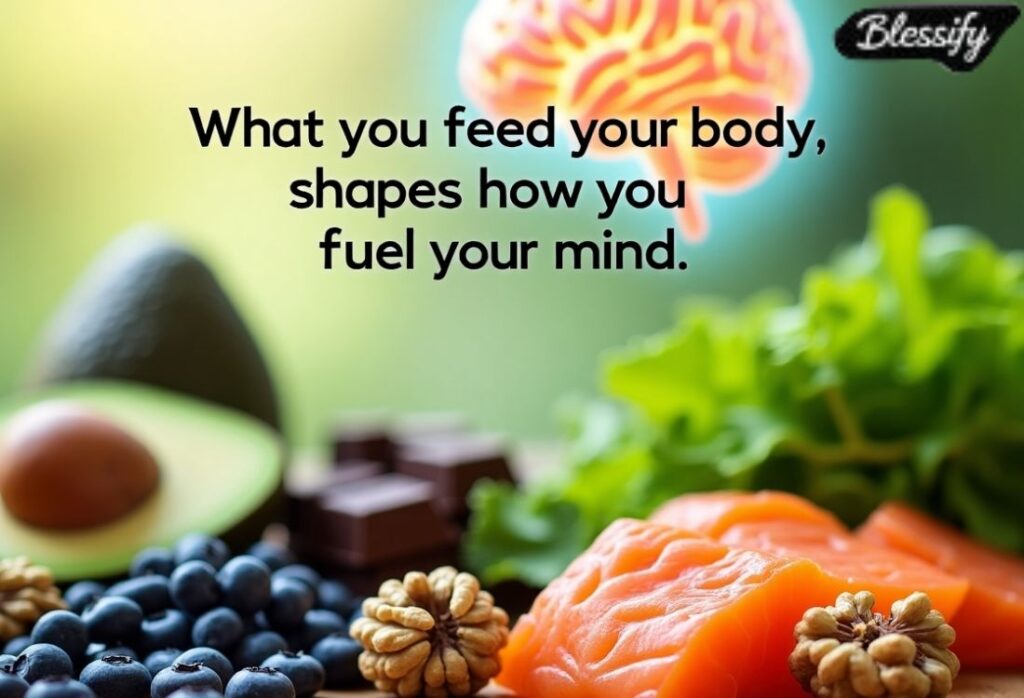
Exercise for Emotional Wellness: Moving with Intention
Exercise doesn’t just change your body. It transforms your emotions too. Moving releases endorphins, which are chemicals that make you feel good. Walking, dancing, or swimming can reduce anxiety, and that’s why many call it one of the best natural remedies for emotional imbalance.
Also read:Inner Peace Therapy:Discover Calmness Through Spiritual Healing
Even just 15 minutes of movement daily can help. The key is to move with purpose, not just burn calories. That’s the beauty of self-care for mental clarity. Your mind feels lighter after your body moves. This is proof that exercise is one of the best holistic practices for emotional balance.
Meditation, Breathwork & Dhikr: Calming the Inner Storm
When your thoughts feel loud or painful, breathing can help. Benefits of breathwork and mindfulness include better focus, less panic, and more peace. Meditation trains your brain to be still. Breathwork calms your nervous system. Dhikr, or repeating names of God in Islam, brings spiritual calm.
Many wonder, does meditation help with depression? The answer is yes. People who meditate regularly report less stress and deeper sleep. If you need spiritual practices to calm anxiety, start with just 5 minutes of slow, deep breathing daily.

Herbal & Natural Remedies for Mental Clarity
Some plants can gently support your brain and nerves. These are called adaptogens. They include herbs like Ashwagandha, Lavender, and St. John’s Wort. These herbs are often used in natural supplements for mental clarity.
If you’re looking for alternatives to antidepressants, these might help. Here’s a table of useful herbs:
| Herb | Purpose |
|---|---|
| Ashwagandha | Lowers stress |
| Rhodiola | Boosts energy and mood |
| Chamomile | Eases anxiety |
| Lemon balm | Promotes calm |
Always speak to a professional before using herbs. They can interact with medicines or health conditions.
Sleep Hygiene & Mental Health: Rebuilding Through Rest
Sleep is how your body repairs and your mind resets. Poor sleep leads to irritability and even depression. That’s why sleep quality and emotional regulation are deeply linked. Good rest helps you think clearly and feel balanced.
Can sleep affect your emotional state? Yes—greatly. Create a bedtime routine, turn off screens early, and try herbal teas or calming music. Deep, regular sleep is one of the easiest natural mental health treatments.
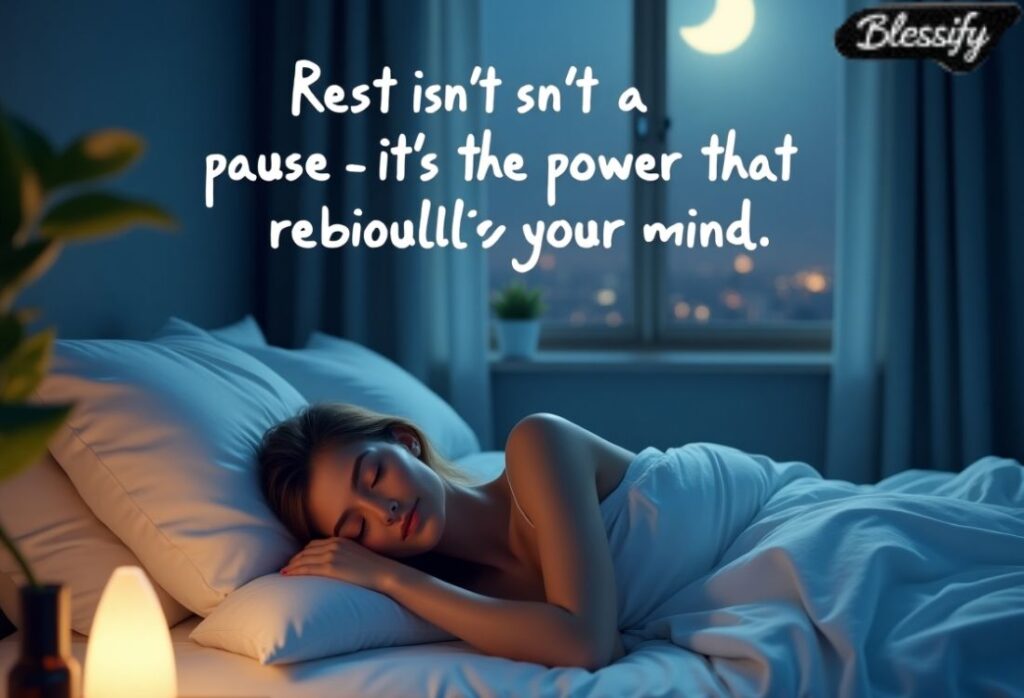
Energy Healing & Aura Cleansing: Ancient Yet Effective?
Many cultures believe we have energy fields around us. When blocked, we feel sick or low. Reiki, sound baths, or crystal healing are ways to unblock and realign energy. People often ask, is energy healing effective? Studies show it can reduce anxiety, pain, and depression.
This kind of care helps with energy balance and mental well-being. Whether or not you believe in auras, the experience of quiet touch, music, or stillness can be very healing.

Journaling, Art & Creative Expression as Emotional Release
Sometimes, words unspoken stay trapped inside. Writing or painting helps you release what you’re holding in. Journaling for emotional release gives your mind a way to process thoughts safely.
Art and music allow you to feel without talking. These are great non-medication treatments for mental health that are easy to try at home. Get a journal and write one page a day about your feelings. This tiny act can lead to big changes.
Community Support and Spiritual Companionship
We are not meant to heal alone. Being part of a kind group can lift you when you’re low. Whether it’s a church, a support group, or a circle of friends, how community helps in healing is powerful.
Some find strength in faith. Faith-based therapy options are growing. They combine psychology with prayer or scripture. These are great tools for those seeking Islamic healing practices for emotional well-being or spiritual approaches to mental wellness.

When to Combine Holistic Therapy with Professional Help
Sometimes, you need more than herbs and meditation. If you’re feeling hopeless, or having thoughts of self-harm, always seek help. Holistic care works best with professional guidance. This is part of integrative mental health.
Use therapy, medication, and natural tools together. If you’re unsure, look for signs like fatigue, sadness, or panic that won’t go away. These are signs you need holistic mental health support.

Creating Your Personalized Holistic Mental Health Routine
Your healing journey is unique. Take time to find what feels good. Build habits that support your mind, body, and spirit. That may include good food, prayer, walks, herbs, and journaling. This is how to create a self-care mental health plan that fits you.
Make it personal. Try new things slowly. Keep what works and let go of what doesn’t. Use the guide below:
| Activity | When to Try |
|---|---|
| Meditation | Daily, morning or night |
| Journaling | At night to release stress |
| Herbal tea | Before bed to sleep better |
| Prayer or Dhikr | During quiet moments |
| Nature walk | When feeling anxious |
You are the expert of your own body. Begin building your routine today. This is building a personalized self-healing plan that lasts.
Conclusion
Holistic approaches to mental health offer a path back to wholeness. Instead of treating symptoms alone, they invite you to care for your full self. When you eat well, move with care, breathe deeply, and surround yourself with love, healing begins.
This kind of care brings balance, calm, and strength. You don’t have to do it all at once. But each small step matters. Whether you’re just curious or deeply in need, these natural mental health treatments can be the light you’re looking for. Your mind, body, and soul deserve it.
FAQs
What is meant by a holistic approach?
A holistic approach means looking at the whole person—mind, body, and soul—to understand and support overall well-being.
What is a holistic system approach?
A holistic system approach views all parts of a system as interconnected, working together to achieve balance and harmony.
What is an example of a holistic approach?
Treating anxiety through a mix of therapy, meditation, diet changes, and exercise instead of just medication is a holistic approach.
What are the different holistic approaches?
They include physical healing (like nutrition), mental therapy, spiritual practices, energy healing, and emotional expression methods.
What are the 5 steps of holistic approach?
- Assess whole-person needs
- Create a balanced plan
- Use natural and therapeutic methods
- Monitor progress across all areas
- Adjust for long-term well-being
What’s another word for holistic approach?
Synonyms include whole-person approach, integrative approach, or comprehensive care.


Welcome to Soulfulblessing! I’m Jav Jav — an AI-powered SEO and content writer with over 2 years of experience crafting engaging, search-optimized content that drives results.

